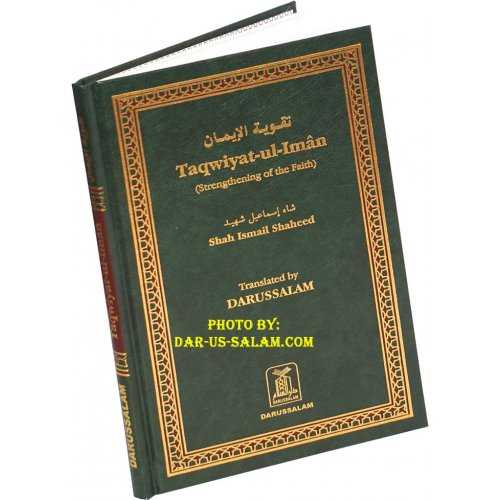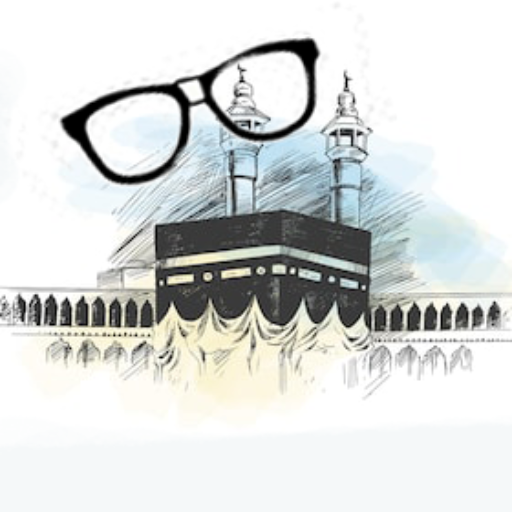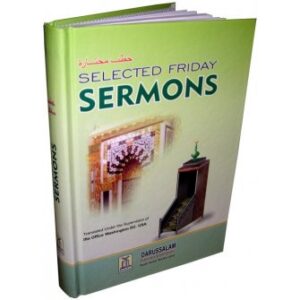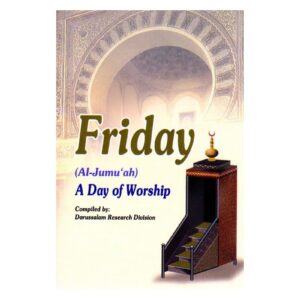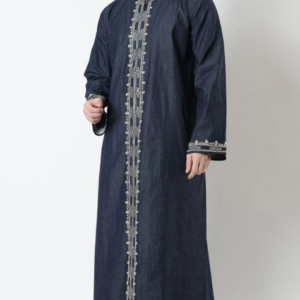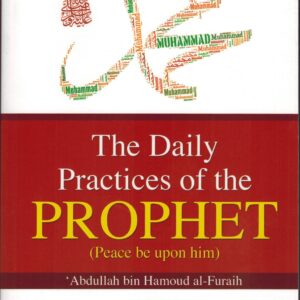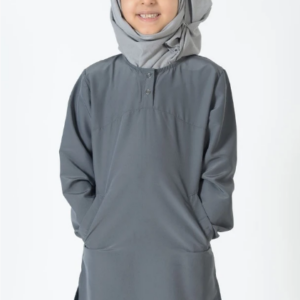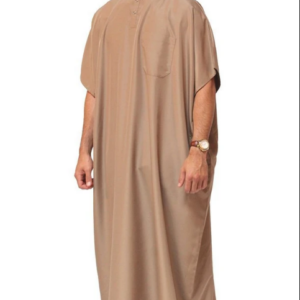A SUMMARY OF THE RULINGS FOR THE DAY OF EID
by Abdullah ibn Muhsin as-Sāhood
All of the below has been derived from: Majmoo’ al-Fatāwā Shaykh Ibn Uthaymeen, Majmoo’ al-Fatāwā Shaykh Ibn Bāz & Al-Lajnah ad-Dā’imah
WHAT EID FESTIVALS ARE PRESCRIBED IN ISLAM?
Ibn ‘Uthaymeen said, “There are three types of Eid festivals in Islam:
1. Eid al-Fitr – this Eid takes place after the fast of Ramadan
2. Eid al-Adha – this Eid takes place after the first ten days of Dhul Hijjah
3. The Friday Eid – this is a weekly Eid that takes place at the end of the week on a
Friday.”
THE RULING FOR ATTENDING THE EID PRAYER FOR MEN AND WOMEN
Ibn Uthaymeen said, “What is apparent [from the text] is that the Eid prayer is an individual
duty on men.”
Ibn Bāz said, “The Eid prayer is a communal duty according to many of the scholars.
However, some scholars hold the view that the Eid prayer is an individual duty, and this
is what is most evidential and closest to the truth.”
The Permanent Committee said, “The Two Eids of Fitr and Adha are both communal duties.
Some of the scholars said that they are individual duties, like the Friday prayer. It is not befitting for a Muslim to abandon them.”
WHAT IS THE RULING ON THE EID PRAYER FOR WOMEN?
Ibn Bāz said, “It is Sunnah for the women to attend the Eid prayer while taking due care to
be covered correctly and not perfumed.” The Permanent Committee said, “It is highly recommended for women to attend the Eid
prayer, provided that they go out covered and they do not display themselves.” Ibn Uthaymeen said, “The view we hold is that women are commanded to go out to pray the Eid prayer and to witness the goodness and to participate with the Muslims in prayer and supplication. However, they must go out looking decent and not displaying themselves or wearing perfume so as to combine between performing the Sunnah and avoiding fitnah.”
THE EID PRAYER WITH RESPECT TO THE TRAVELLER
Ibn Uthaymeen said, “The Eid prayer is not prescribed for the traveller, but if the traveller is residing in a place where the Eid prayer is performed then he is commanded to pray with the Muslims.”
MAKING UP THE EID PRAYER FOR THE ONE WHO MISSES IT
Should a person make up the Eid prayer if he misses it? Ibn Uthaymeen said, “If he misses it then he should not make it up.”
OFFERING CONGRATULATIONS ON THE DAY OF EID
Is there a particular way the Salaf used to congratulate each other on Eid? Ibn Uthaymeen said, “Some of the Salaf used to congratulate each other on Eid, and even if we assume that they did not do that, it has now become something customary that people are used to doing.”
Ibn Bāz said, “There is no harm that a Muslim says to his brother on the day of Eid or any other day َ تَق َّبَلُﷲِمّنَا وِمْنُكْمَأْعَمَالَن َّا الصِالَحَة (May Allah accept our righteous deeds and yours). I do not know of anything mentioned in the text specifically.”
WHAT IS THE RULING ON HANDSHAKING AND HUGGING AFTER THE EID PRAYER?
Ibn Uthaymeen said, “There is no harm in doing this because the people are not taken this to be an act of worship, an act done for seeking closeness to Allah. Rather they are doing it as a custom to show respect and hospitality.”
THE ETIQUETTES FOR THE EID PRAYER
What are the etiquettes for the Eid prayer? Ibn Uthaymeen said, “The Etiquettes for the Eid
prayer are
- The recommendation to say “Allahu Akbar”
- Eating an odd number of dates before going to the Eid prayer.
- Wearing one’s best clothes. This is for the men. As for women then they do not adorn
- themselves with beautify clothing when going out for Eid.
- Performing ghusl (ritual bathing) for the Eid prayer.
- Congratulating each other on the day of Eid.
- It is prescribed for the one who prays the Eid prayer to take a different route back
- home when returning.
What is the Sunnah for the people before the prayer on Eid al-Fitr and Eid al-Adha?
Ibn Uthaymeen said, “The Sunnah with respect to Eid al-Fitr is to eat an odd number of dates before leaving to pray the Eid prayer. With respect to Eid al-Adha then the Sunnah is to eat from the animal he sacrificed before the Eid prayer.”
Is it Sunnah to go to the Eid prayer walking or riding? Ibn Uthaymeen said, “It is Sunnah for him to walk, but if he needs to take a ride to get there then there is no harm in taking a ride.”
The Most Comprehensive and Authentic Explaination of the Quran!  Purchase the complete Tafsir Ibn Kathir (10 Vol Abridged) By Dar-us-Salam Publications. |
What is the wisdom in taking a different route home from the Eid prayer?
Ibn Uthaymeen said, “Emulating the Prophet (ﷺ), for this is an action from the Sunnah. To make manifest the religious occasion of Eid in all of the market places in the land. The people in the market places and others amongst them from the poor can be seen [so that charity can be given to them]. Both routes taken will bear witness for the person on the Day of Resurrection.”
WHERE IS THE EID PRAYER PERFORMED?
What is the ruling on praying Eid in the masjid? Ibn Uthaymeen said, “It is disliked to pray the Eid prayer in the masjid except for if there is a valid reason because the Sunnah is to perform the Eid prayer in an open space.”17
Is it prescribed for the Eid prayer to be performed in the outback? Ibn Bāz said, “The Eid prayer is only performed in cities and towns and it is not legislated to pray it in the deserts or on journeys.”
What is the ruling on performing the Eid prayer in a sports stadium?
Ibn Bāz said, “There is nothing wrong with praying in the aforementioned place, as along as the place is clean and free of any ritual impurities.”
A NUMBER OF DIFFERENT PLACES FOR THE EID PRAYER
What is the ruling on having a number of places for the Eid prayer in the land? Ibn Uthaymeen said, “If there is a need to do so then there is no harm in this, and this also applies when the need arises on the day of Jumu’ah.”
A Summary of the Rulings for the Day of Eid
THE TIME OF THE EID PRAYER
What is the time for the Eid prayer? Ibn Uthaymeen said, “The time of the Eid prayer is when the sun has risen to the height of a spear above the horizon up until the sun is at its zenith (before Zuhr). However, it is prescribed to bring the prayer of al-Adha forward (so as to sacrifice) and to delay the prayer of al-Fitr, since it was reported that the Prophet (ﷺ) prayed the Adha prayer when the sun was a spears length and he prayed the Fitr prayer when it was two spears length.”
GREETING THE MASJID ON EID (PRAYING TWO UNITS OF PRAYER)
What is the ruling on greeting the masjid before the Eid prayer? Ibn Bāz said, “If the Eid prayer is performed in the masjid then it is prescribed for the one who comes to the prayer to pray the greeting of the masjid. If, however, he prays in a place that has been set up for the two Eid prayers then it is not prescribed to pray before the Eid prayer.”
Should the one who enters the praying place for Eid perform the greeting of the masjid?
Ibn Uthaymeen said, “The preponderant view is that the one who enters the praying place should not sit before praying two units of prayer.”
-
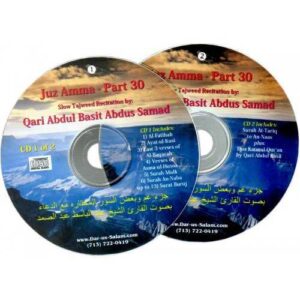 Juz Amma Tajweed Recitation by Qari Abdul Basit (2 CDs)Original price was: $10.95.$9.95Current price is: $9.95.
Juz Amma Tajweed Recitation by Qari Abdul Basit (2 CDs)Original price was: $10.95.$9.95Current price is: $9.95. -
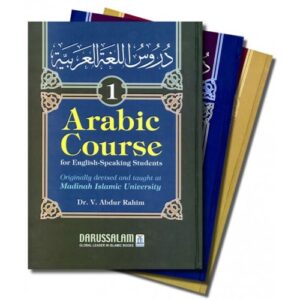 Madina Arabic Course (3 Volume Set)Original price was: $94.95.$74.95Current price is: $74.95.
Madina Arabic Course (3 Volume Set)Original price was: $94.95.$74.95Current price is: $74.95. -
Selected Friday SermonsOriginal price was: $19.95.$17.95Current price is: $17.95.
-
Friday: A Day Of WorshipOriginal price was: $3.95.$2.95Current price is: $2.95.
-
Mens Denim Embroidered ThobeOriginal price was: $80.99.$44.99Current price is: $44.99.
-
Hand Held Bidet (Muslim Shower)Original price was: $39.95.$29.95Current price is: $29.95.
-
The Daily Practice of The ProphetOriginal price was: $15.00.$11.95Current price is: $11.95.
-
35 inches Extra Long Uniform Kurti- Kids SizeOriginal price was: $32.99.$17.99Current price is: $17.99.
-
Mens Hand Embroidered ThobeOriginal price was: $79.99.$39.99Current price is: $39.99.
THE GENERAL RULINGS FOR THE PRAYING PLACE FOR EID
Does the praying place for Eid fall under the general rulings of the masjid? Ibn Uthaymeen said, “What is apparent from the Sunnah is that the praying place for Eid is a masjid.”
THE ADHĀN AND THE IQĀMAH FOR THE EID PRAYER
Is there an Adhān and Iqāmah for the Eid prayer? Ibn Uthaymeen said, “The Eid prayer does not have an Adhān and an Iqāmah.”
What is the ruling for making the call to prayer for the Eid prayer?
Ibn Bāz said, “The call to prayer for the Eid prayer is an innovation that has no basis [in the Sunnah].”
Translator’s note: Scholars who hold this view argue that the place where Eid is performed is effectively a masjid because women are not allowed to enter it and thus it takes the ruling of the masjid. From the rulings of the masjid is that a person should not sit until he has prayed two units of prayer.
A DESCRIPTION OF THE EID PRAYER
How is the Eid prayer performed? Ibn Uthaymeen said, “He says the opening Takbeer and opening supplication and then he says the takbeer six more times. Then he reads al-Fātihah and another chapter after it – preferably chapter al-A’lā or Qāf in the first unit.
When he stands from prostrating for the second unit he says takbeer and when he has stood up completely, he says takbeer five times. Then he reads al-Fātihah and another chapter. If he read al-A’la in the first unit, he should read al-Ghāshiyah in the second. If, however, he read in the first Qāf, he should read in the second al-Qamar.
What is the ruling with regard to the one who limits himself to saying just the opening takbeer?
Ibn Uthaymeen said, “His prayer remains valid if he limits himself to just saying the opening takbeer because the additional takbeers are Sunnah (recommended).”
When should a person say the opening supplication in the Eid prayer?
Ibn Uthaymeen said, “He says the opening supplication after the opening takbeer. This matter is broad in scope, so much so that if he were to delay the opening supplication until after the last takbeer then there is no harm in this.”
What is the ruling for the one who reaches the prayer while the Imam has said some of the takbeers?
Ibn Uthaymeen said, “If you enter the prayer while the Imam is saying the takbeers then you should say the opening takbeer first and then repeat the rest of the takbeers that the Imam is yet to say and you do not have to make up what has been missed.”
If a person enters the Eid prayer after the Imam has completed the first unit of prayer, how should he make up for what he has missed? Ibn Uthaymeen said, “He should make up what he has missed of the prayer after the Imam has given the Salams.”
THE SERMON FOR THE EID PRAYER
What is the ruling on delivering the sermon before the Eid prayer? Ibn Uthaymeen said, “Delivering the sermon for the two Eids before the prayer is an innovation, and it was a practice renounced by the Companions.”
Should the person who gives the sermon on Eid commence with seeking forgiveness or with saying the takbeer?
Ibn Uthaymeen said, “As for seeking forgiveness then he should not
commence his sermon with it, and I do not know anyone who holds this view. As for saying tahmeed (praising Allah) and takbeer then the scholars differ in this matter. Some of them say that he should start with takbeer whilst others say that he should start with tahmeed. The matter is broad in scope.”
What is the ruling on remaining present for the Eid sermon?
Ibn Uthaymeen said, “Remaining present for the Eid sermon is not mandatory. Whoever wishes to remain present then he may stay to listen and benefit, and whoever wishes to leave then he may leave.”
What is the ruling on speaking during the Eid sermon?
Ibn Uthaymeen said, “Without doubt, it is from good etiquette not to speak during the sermon because if he speaks, he will distract himself and others from listening to the sermon.”
THE TAKBIR DURING THE TWO EIDS
What is the takbeer at specific times and the takbeer that is done all the time? The Permanent Committee said, “The takbeer that is performed all times starts at the month of Dhul Hijjah and ends on the days of al-Tashreeq, (the 11 th, 12 th and 13 th of Dhul Hijjah). As for the specific times for takbeer then they are at the end of the obligatory prayers that start from Fajr on the day of ‘Arafat and last until the ‘Asr prayer on the last day of Tashreeq.”
When does the takbeer begin and end for the Fitr Eid?
Ibn Uthaymeen said, “The takbeer for the Eid prayer starts from sunset on the last day of Ramadan and ends when the Imam is present for the Eid prayer.”
What is the format of the takbeer during the two Eids? Ibn Uthaymeen said, “Its format is Allah is Most Great, Allah is Most Great. There is no god worthy of worship except Allah. Allah is Most Great, Allah is Most Great and for Allah is all praise.
Or, alternatively, he can say, Allah is Most Great, Allah is Most Great, Allah is Most Great. There is no god worthy of worship except Allah. Allah is Most Great, Allah is Most Great, Allah is Most Great and for Allah is all praise.”
What is the ruling on saying the takbeer in unison during the days of Eid?
Ibn Uthaymeen said, “Saying the takbeer in unison is not a legislated act. The Sunnah with regard to this matter is that the person should say the takbeer loudly and individually.”
What is your opinion with regard to the one who uses a microphone on Eid days to say the takbeer so that the people can chant it after him?
Ibn Uthaymeen said, “I fear that this falls under a type of excessiveness.”
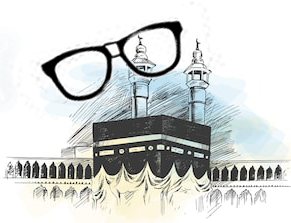
Don’t forget to comment & share. Also please click our ads, they pay the bills. jazakallahu khayr.
